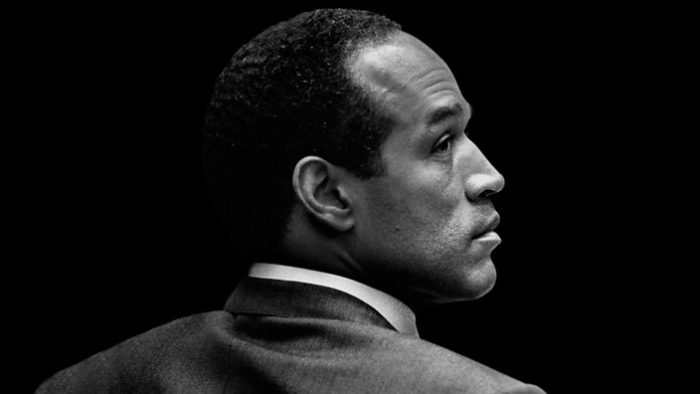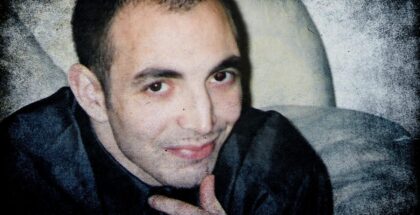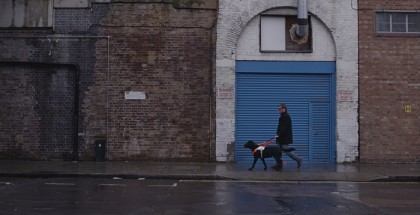OJ: Made in America: A monumental piece of documentary filmmaking
Review Overview
Crime
10Context
10Commentary
10David Farnor | On 26, Feb 2017
“We talk about OJ as if the story is OJ,” says one talking head in OJ: Made in America. “The story is OJ and us.” It’s a staggering insight in a documentary full of staggering insights, as Ezra Edelman puts the familiar court case under the microscope, not by honing in on the trial, but by zooming out to capture the bigger picture. It’s a piece of cinema that brings context to history with profound clarity. The title mentions OJ but the emphasis is firmly on “made in America”. The result is a dizzying, towering epic.
To many, particularly in the UK, the trial of OJ Simpson began on the night of 12th June, 1994, when Nicole Brown Simpson and Ron Goldman were murdered. But Edelman begins his narrative long before then. Telling Simpson’s tale over seven hours, we’re effectively treated to a two-hour prologue before we even start to tackle his now-famous legal battle. This is not just the story of a man charged with murdering his wife. This is the story of the migration of African-Americans to the USA, of an urge to escape the Los Angeles governed by a racist police force to reach the wealth and glamour of the white California. While riots took place in one world, OJ had already broken through into the other, his record-breaking runs in the NFL pushing him to become a star – an icon, no less, of American success.
We watch him grow from a footballer to a screen legend, appearing in Hollywood blockbusters, joking around in The Naked Gun, trying his hand at sports broadcasting, and even becoming the face of a hire car company. “Go, OJ, go!” cries a friendly old lady in the Hertz commercials, which saw Simpson surrounding by white faces in an intentional move to stop the firm’s target market being alienated. OJ: Made in America is full of those tiny details, assembling, piece by piece, a complex portrait of a man who seemed to knowingly erase any African-American history from his person.
People tell us repeatedly how charming he is, how the player nicknamed “The Juice” dazzled them with a smile, but ESPN’s documentary peels back that charismatic surface to reveal a man who was painstakingly in control of his appearance at all times. That’s as true in his trial as it was his professional and personal life – we witness him changing his facial expressions every time he was the focus of attention in court, while his defence team coordinated their outfits to wear kente ties, partly a response to recordings of LAPD detective Mark Fuhrman (who investigated Nicole and Ron’s murders) using racist words to refer to African-Americans.
The parallels aren’t just there for dramatic effect. Edelman shows how little difference there was between showbiz OJ and show trial OJ: with cameras in the courtroom to broadcast the whole thing on CNN, the case became a TV event in itself, a media circus that made everyone involved celebrities of a sort. Key figures won fans in living rooms across the nation, not unlike the lawyers featured in Netflix’s recent series Making a Murderer. Did OJ’s attorney mind being told by Simpson to wipe spit off his mouth to portray the right image for his audience? Of course not, he admits to us, because he had the dream job of a life time.
There’s a cloying underlying theme of celebrity, and the hunger for that adoration, that runs through the events, just as the film gradually exposes the undercurrent of abuse and control OJ subjected Nicole to. Even after her death, that appetite continued. While he sat in jail, we’re told, OJ’s estate made $3 million selling autographed merchandise. After he was acquitted, he returned to the limelight with renewed vigour, attending strip bars, playing golf, writing a book in 2006 (playfully called “If I did it”) and making endless media appearances.
The more we see, the more chilling it gets – Edelman’s access is uncompromising and unflinching. The police have their say, too, with Ron Shipp describing his reaction to the photos of the crime scene, which we’re also shown. “Only an animal would do something like this to the mother of their kid,” he comments, tearfully going on to recount his first homicide case on the job, which was a similarly grisly affair.
Over five parts (released in three blocks by the BBC’s Storyville strand – the best box set you’ll ever find on BBC iPlayer), there’s time here for everyone to comment on every conceivable aspect of OJ’s case, yet there’s nothing here that’s superfluous or irrelevant: this is in-depth documentary filmmaking that’s as sharp as a tack, never wasting a minute. It’s as comprehensive as it is concise. You can’t think of a single thing to take out.
What they’ve put in is a gob-smacking mix of everything you could want from a film. The editing by Bret Granato, Maya Mumma and Ben Sozanski is an astonishing feat of organisation and entertainment. There’s humour in OJ’s initially upbeat rise to success. There’s nail-biting tension in the now legendary glove-fitting scene, even though we know the outcome, as we’re given running commentary from the legal teams involved. (As soon as the line “If it doesn’t fit, you must acquit” is cooked up over a phone call during the trial-planning phase, everyone knows it’s a winner.) There’s the shocking horror of the murders themselves, brought to life in an alarmingly graphic new light.
As the final hours move into OJ’s life after the trial, and the way that the world continued to react to it, there’s sobering reflection on the significance of Simpson and his story – a narrative that comes into horrifying focus, as Edelman charts the way that context shaped, and was shaped by, its central figure. The jury’s decision to acquit, as OJ’s team leaned upon civil rights for their closing statement, is framed as payback – not for something that happened in 1994, but for hundreds of years of life in America. And yet that misplaced retaliation resulted in the release of a man who had distanced himself from Black America, a man who the system, years later, ended up convicting for a robbery in 2008 (13 years to the day of his acquittal for the murder of Nicole and Ron).
“People were on fire, excited,” observes minister Mark Whitlock. “Finally, the criminal justice system worked in favour of an African-American man.”
“I didn’t see it as an example of African-Americans being free or we beating the criminal justice system,” he adds. “Not for African-Americans. It was a victory for a rich guy named O.J. Simpson, and I was troubled by it.”
“Life goes on,” OJ later grins to one interviewer, when they try to raise the subject of Nicole years after the trial. In 2017, though, we continue to talk about OJ Simpson, partly thanks to FX’s series, The People vs. OJ Simpson, and partly thanks to Edelman’s documentary. But you get the sense that the story will resonate for decades to come, not just because of its billing as the Trial of the Century, but because it ties into the fabric of America itself. Woven over time, it’s a tapestry of fame, race, national trust and one man’s success in a wide range of guises and fields; a stew of conflicting ironies and cruel acts left to boil for years. It’s a story not just of a man, but of OJ and the US. Your mind will be reeling from the layers and insights it contains. Despite its runtime of 467 minutes, you won’t regret a single second, or notice as they tick by. This is a monumental piece of filmmaking.
OJ: Made in America is available on Disney+ UK, as part of a £7.99 monthly subscription or a £79.99 yearly subscription. It is also available on BBC iPlayer until March 2022.






















